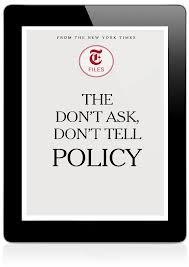What is Employment Security Commission?
It is a federal and state program for the unemployed to still receive money while they are out of work and searching for more employment. It is designed to help support families and households while the unemployed candidate is searching for another job. This program does have its limits and is not meant to pay the candidate the same amount that he or she made previously, or to enable the same standard of living before the candidate lost his or her job.
What does it offer?
The basic function of the program is that it pays the unemployed while they are searching for other employment options. However it also offers other services and benefits to help enhance the knowledge of the candidates. The program wants to help and encourage employment, not support the unemployed. Other benefits include: career information, resume help, training programs and job fairs.
How does it work?
The government began collecting a payroll tax on employers under the 1935 act. States were then also encouraged to set up programs following similar and broad guidelines. Currently, all states have some form of this program. Although each state has its own form of the program, they still follow the federal rules and guidelines. Most are standard with little differences such as the name of the program may vary from state to state as well as the specific benefits that are offered.
Who can apply to recieve the benefits?
Generally, anyone who lost their job can apply. However there are conditions that must be met before the unemployed candidate receives the insurance. The candidate must be out of work for reasons other than their own. For example, he or she must have been fired or if he or she quit, the reasoning must prove that there was legitimate cause such as safety issues. Also, in order to file for unemployment, the candidate needed to have worked for his or her previous employer long enough to prove that the employer paid a sufficient amount of money for the candidate into the system. The standard time period that the a state looks into the work history is about 15 months.
How long can you use it?
The general amount of time to receive unemployment benefits is about 26 weeks. However, there is the ability to apply for an extension that goes up to about 99 weeks. The amount of time depends on the qualification of the candidate.
For more information:
or
- Visit the program that your own state offers.
Alabama
Alaska
Arizona
Arkansas
California
Colorado
Connecticut
Delaware
Florida
Georgia
Hawaii
Idaho
Illinois
Indiana
Iowa
Kansas
Kentucky
Louisiana
Maine
Maryland
Massachusetts
Michigan
Minnesota
Mississippi
Missouri
Montana
Nebraska
Nevada
New Hampshire
New Jersey
New Mexico
New York
North Carolina
North Dakota
Ohio
Oklahoma
Oregon
Pennsylvania
Rhode Island
South Carolina
South Dakota
Tennessee
Texas
Utah
Vermont
Virginia
Washington
West Virginia
Wisconsin
Wyoming









